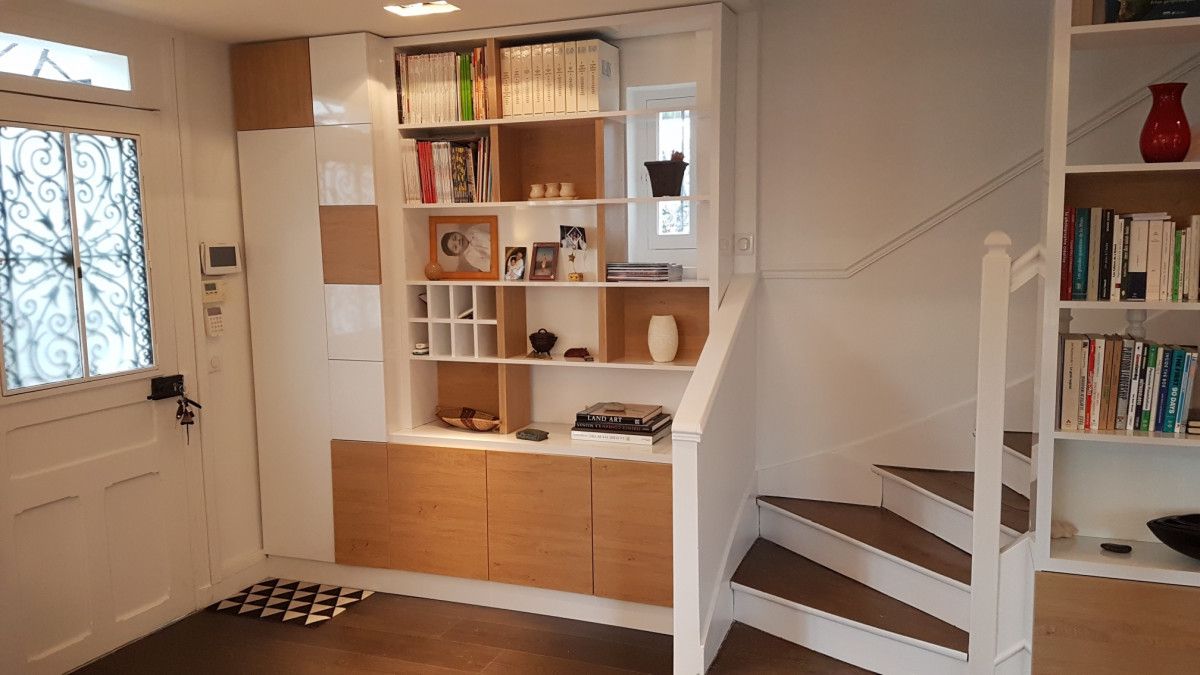
Article : What type of base should I choose for my furniture?
Wondering what funds to choose for your furniture? This article is for you.

Wondering what funds to choose for your furniture? This article is for you.
You're currently making your furniture on our configurator and you're hesitating between our two types of backgrounds? If you can't see the difference between the two, this article is for you.
At DessineTonMeuble.fr, we offer two different types of background:
Ideal for covering the back of your furniture and preventing small objects from getting between it and the wall.
Many choices are available.
Provides lateral stability for the furniture.
It's lightweight, so it's easy to re-cut. If you need to, you can easily cut openings in this base for the passage of sockets, cables, pipes, and so on, using basic tools such as a large cutter or a small saw.
The 3mm base, has only one coloured side, so it is reserved for furniture glued to the wall.
The colours available for 3mm bases are limited:
The solid bottom provides additional rigidity to the furniture and therefore reinforces the solidity of the whole. Beware, as a result, the base makes the furniture significantly heavier.
Note that it cannot be easily reworked. Cut-outs, openings for the integration of sockets, cable passages etc, will therefore be difficult to make.
The solid back has both sides coloured, ideal if you want a piece of furniture that separates rooms. The choice of colours for this type of back is the same as for the rest of your furniture.
You can also choose to equip just one part of your furniture with a back. For this option, only 18mm thick solid backs are available.
You'll get very similar results in terms of rigidity, but without the constraint of a heavy, fully enclosed cabinet.
To add a partial back to your cabinet, you can follow this help.
You can position the partial back in three different ways:
In our configurator, you can also put a front panel. But what's the difference between a solid background and a front panel? There are several:
The solid back panel is ideal for adding touches of colour in certain areas, or mid-depth in a clerestory bookcase.
Doubtful about how to use our configurator and add a partial back panel? You'll find all the information thanks to this help.
Field veneer consists of applying a strip to the edge of a panel to finish it off and make it look better if it's visible from the back.
By default, its configuration is not automatic. If you decide to make the back of your furniture visible, choose the "back edge veneer" option in the "Base, back" tab.
Try configuring your cabinet now.
In the same style:
What type of runner should I choose for my drawer?
What type of shelf should I choose for my cabinet?